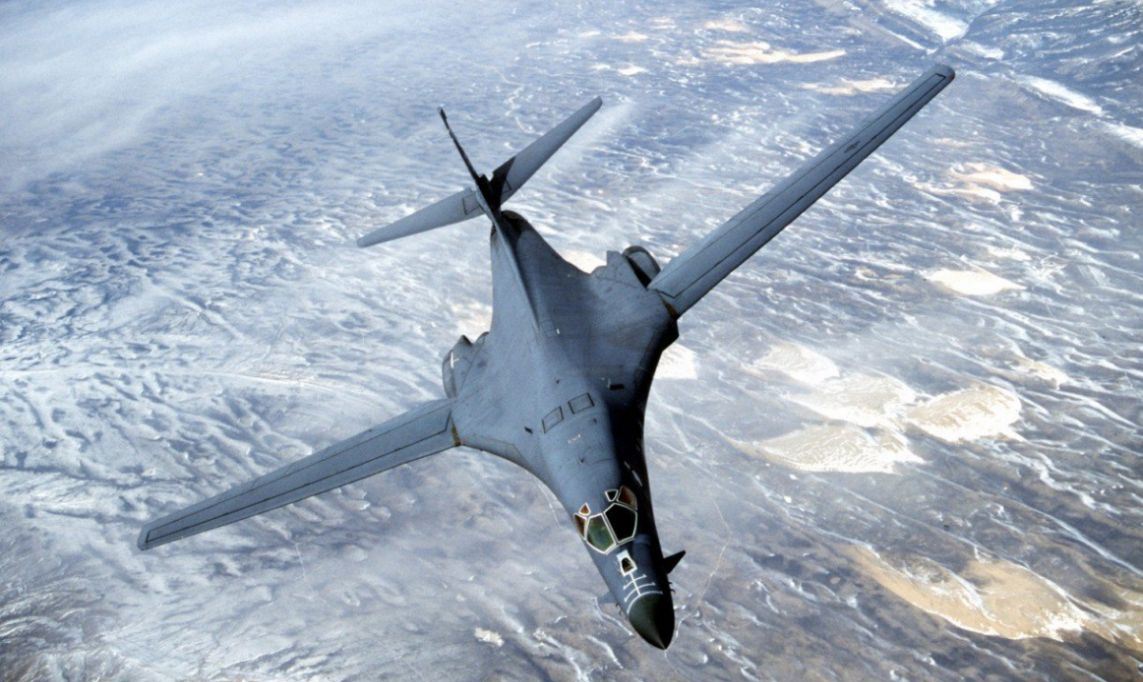

| Online: | |
| Visits: | |
| Stories: |
American Middle East assets should prepare for huge losses. Russia’s response to missile attack.
 By further weakening what remains of the pro-Western Syrian rebels, Russia would ensure Assad’s regime remains in power—protecting Moscow’s interests in the region. “That will likely eliminate U.S. influence on Syria and will probably cause losses among the intelligence personnel,” Kashin said. “Basically, the response would be the same as after the incident with Turkey. No attack on Turkey itself, but pro-Turkish groups, Turkish special operations and intelligence assets were specifically targeted and their losses were huge.” How Russia Will Respond to America’s Missile Strike in Syria
By further weakening what remains of the pro-Western Syrian rebels, Russia would ensure Assad’s regime remains in power—protecting Moscow’s interests in the region. “That will likely eliminate U.S. influence on Syria and will probably cause losses among the intelligence personnel,” Kashin said. “Basically, the response would be the same as after the incident with Turkey. No attack on Turkey itself, but pro-Turkish groups, Turkish special operations and intelligence assets were specifically targeted and their losses were huge.” How Russia Will Respond to America’s Missile Strike in Syria Russia is furious about American cruise missile strikes against Syria, which came as a response to the Assad regime’s widely reported use of chemical weapons against civilians during that nation’s long civil war.
Thus far, the Kremlin’s reaction has been angry rhetoric and suspension of an October 2015 channel that was established to deconflict U.S. and Russian military operations over Syria. Russia has also promised to bolster Syrian air defense capabilities as a result of the American strike. But Moscow is likely to take further retaliatory measures in Syria over the next few weeks.
The Russians are almost certainly going to respond to the attack on Syria—but not directly against the United States. Rather, the Kremlin will channel its wrath against American-backed Syrian rebel groups. “My understanding of the likely response is: cut contacts and cooperation on Syria with the U.S.,” Russian defense and foreign policy expert Vasily Kashin, a professor at Moscow’s Higher School of Economics (HSE) told The National Interest. “Specifically target and destroy pro-U.S. groups; bring additional forces there; maybe start some large scale exercise in Europe.”
The problem becomes even more complicated if the United States decides that it wants to overthrow the Assad regime. Indeed, Trump’s UN Ambassador Nikki Haley warned Syria that America might be willing to expand its military campaign against Damascus. “The United States took a very measured step last night,” Haley said at the United Nations Security Council. “We are prepared to do more. But we hope that will not be necessary. It is time for all civilized nations to stop the horrors that are taking place in Syria and demand a political solution.”
That being said, the Trump White House has been sending mixed messages about whether it will expand the U.S. campaign against Assad—or if last night’s attack was a one off event. Earlier this afternoon, White House press secretary Sean Spicer seemed to suggest the Trump administration is not going to pursue a wider war in Syria.
If the United States does conduct a campaign to overthrow Assad’s regime, the Russians will likely respond more forcefully. Moreover, in the event that the United States were to directly engage the Kremlin’s forces in Syria to suppress Russian air defenses, Moscow is likely to respond militarily. “In this case, we will have a war and there will be cruise missile attacks against U.S. forces across the Middle East,” Kashin said. “Then it will escalate into a full scale war.”
A senior U.S. Air Force official agreed with Kashin’s assessment—a strike on Russian air defense assets such as the S-400 and S-300V4 batteries stationed in Syria would lead to war. “You’re talking about having to destroy or suppress Russian assets, manned by Russian personnel, which would, of course, mean outright war between the United States and Russia,” the U.S. Air Force official told The National Interest.
Meanwhile, experts on the Kremlin’s foreign policy—both in the United States and Russia—said that any hopes for a rapprochement between the Trump administration and Moscow are fading fast as a result of last night’s cruise-missile strike. “I think the Russians are seeing this as a real blow to hopes for rapprochement. They will make a big deal of this being illegal,” Olga Oliker, director of the Russia and Eurasia program at the Center for Strategic and International Studies (CSIS) told The National Interest.
The Kremlin is making the argument that the U.S. cruise missile strike—which included fifty-nine Tomahawk cruise missiles launched from the destroyers USS Porter (DDG-78) and USS Ross (DDG-71)—did little damage. Indeed, U.S. defense officials have said that they not only warned Russia before launching the attack but also carefully made sure not to accidentally hit any of Moscow’s forces. Russian forces, in turn, likely warned their Syrian counterparts—meaning [Syrian dictator Bashar al] Assad’s forces had time to evacuate before the missiles hit their targets.
“Russians are also arguing that strike was ineffective. And, of course, warning the Russians means that the U.S. effectively warned the Syrians, too,” Oliker said.
“Though also notable is that the Russians/Syrians did not use air defenses—they let the strike happen rather than risk escalation. Basically, they let it be symbolic; the question is where it goes from here. Russian withdrawal from deconfliction is very significant—it raises the hazard danger for any further U.S. action substantially.”
Thus, if the United States chooses to further escalate the conflict in Syria—especially toward the goal of regime change—there could be serious consequences. “Russia may have been willing to back away further from Assad, but if the U.S. prosecutes a military campaign against him, they have a tougher time doing that,” Oliker said.
Dave MAJUMDAR
Source: http://tapnewswire.com/2017/04/american-middle-east-assets-should-prepare-for-huge-losses-russias-response-to-missile-attack/



